Find Help
More Items From Ergsy search
-

Exercise in patients with a neuropathy
Relevance: 100%
-
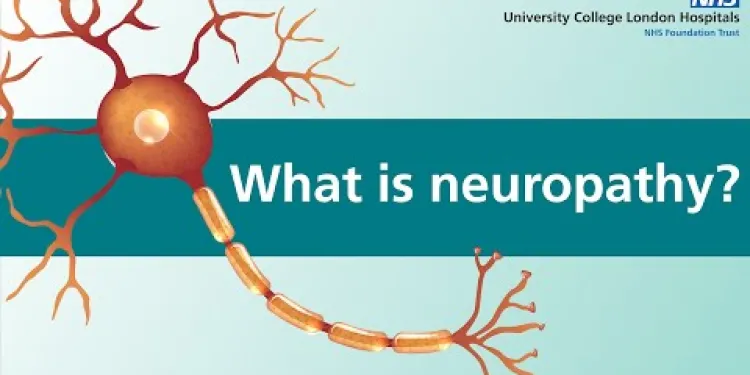
What is a neuropathy?
Relevance: 62%
-

What is vasculitic neuropathy?
Relevance: 57%
-

What types of exercise are beneficial for bowel cancer patients?
Relevance: 41%
-

How does exercise impact heart failure?
Relevance: 30%
-

How does exercise impact bowel cancer progression?
Relevance: 29%
-

Can exercise help slow down the progression of bowel cancer?
Relevance: 28%
-

Can exercise help slow down the progression of bowel cancer?
Relevance: 28%
-
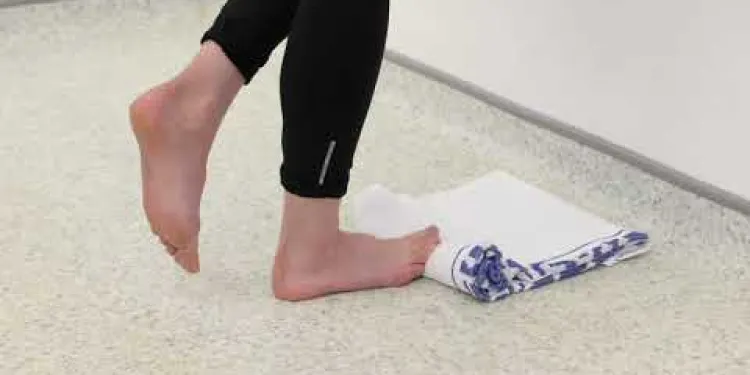
Plantar Fascia Loading Exercise (High Load Exercise)
Relevance: 28%
-
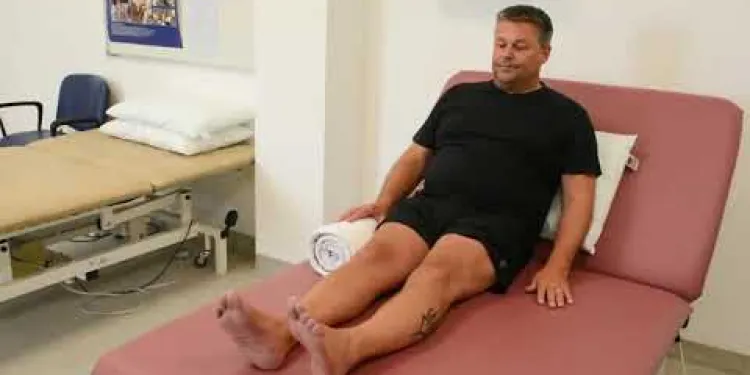
Joint School - Knee Exercises
Relevance: 27%
-

Neck Exercises
Relevance: 27%
-

Neck Exercises
Relevance: 27%
-
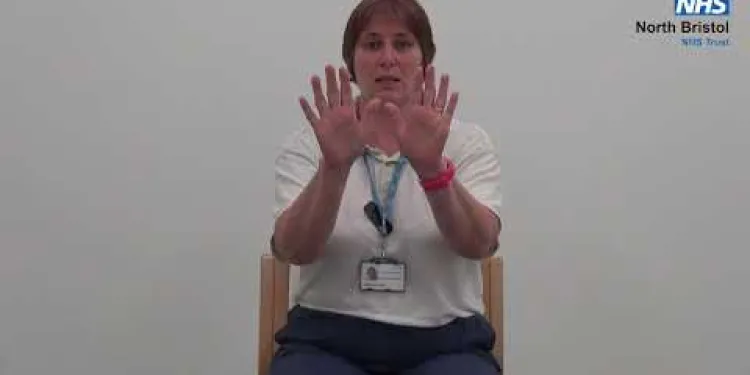
Shoulder Exercises 1
Relevance: 27%
-

Does physical exercise help people with CFS?
Relevance: 27%
-

What are mixed exercises?
Relevance: 25%
-

Facial exercise programme
Relevance: 25%
-

Can exercise worsen whiplash symptoms?
Relevance: 25%
-
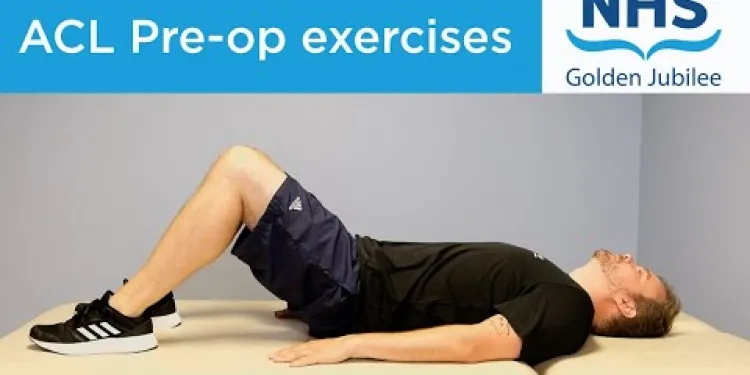
ACL pre-operation exercises
Relevance: 25%
-
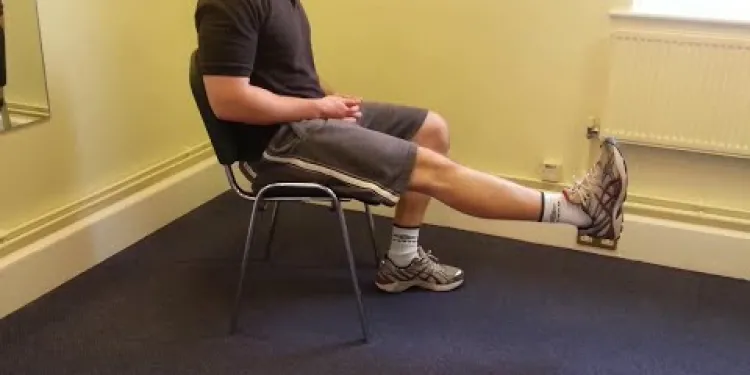
Knee Care Exercises
Relevance: 25%
-

Neck Care Exercises
Relevance: 25%
-

How important is self-care for carers of Alzheimer's patients?
Relevance: 25%
-

Is it safe to exercise with a cold?
Relevance: 25%
-

Positioning for Breathless Patient
Relevance: 25%
-
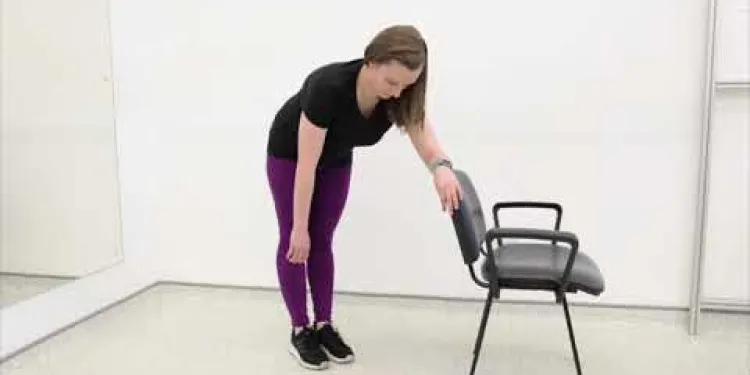
Frozen shoulder Pendular Exercises
Relevance: 25%
-
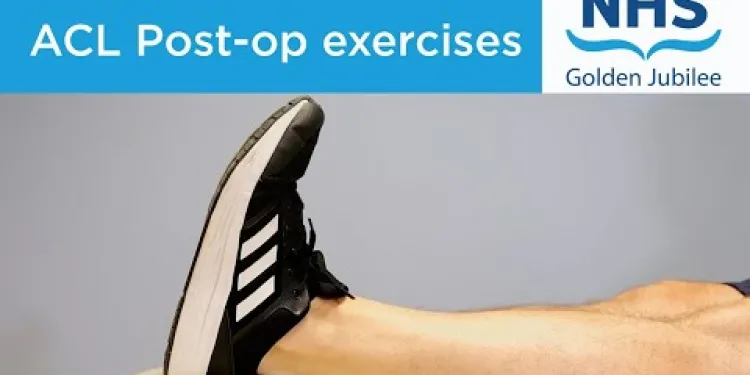
ACL exercises post-operation
Relevance: 25%
-
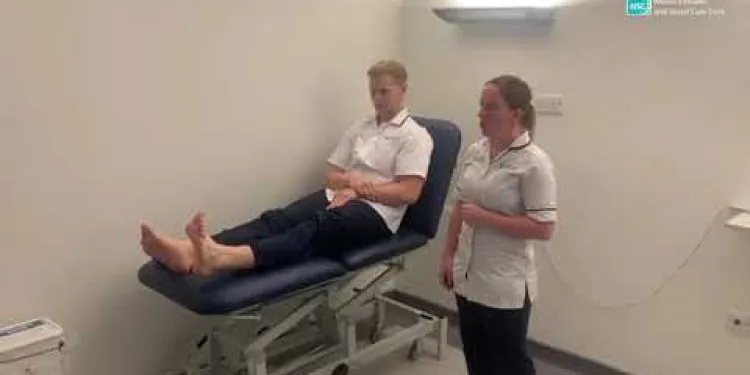
Physiotherapy Exercises following an Ankle Fracture
Relevance: 24%
-

Can technology aid in the care of Alzheimer's patients?
Relevance: 24%
-
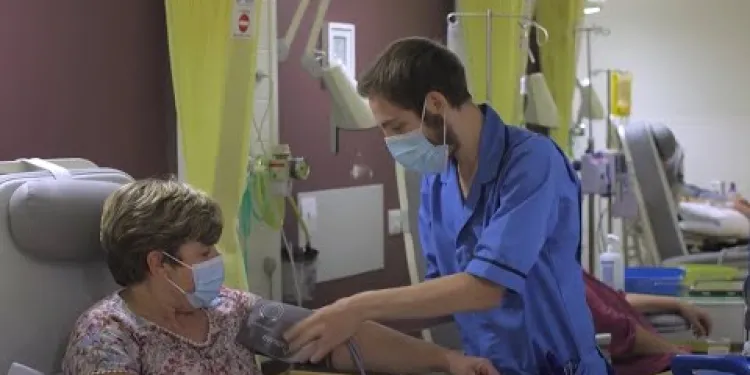
Chemotherapy - the patient journey
Relevance: 24%
-
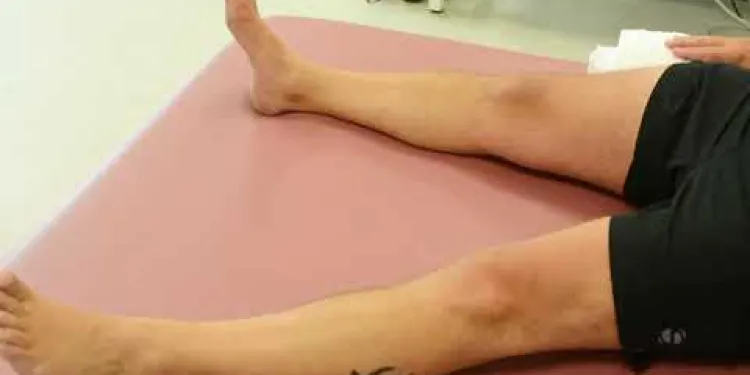
Joint School - Hip Exercises
Relevance: 24%
-

Will I be able to engage in physical exercise?
Relevance: 24%
-

Do mixed exercises build endurance?
Relevance: 24%
-

Why are mixed exercises better ?
Relevance: 24%
-
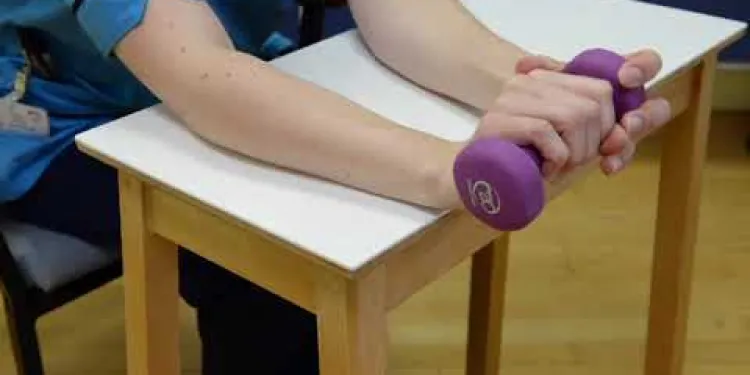
Elbow Eccentric Strengthening Exercise
Relevance: 24%
-

Assessing the stroke patient
Relevance: 24%
-

The Pelvic Floor Muscles - Developing an Exercise Programme
Relevance: 23%
-

Exercise Routines for Busy Parents
Relevance: 23%
-

Are there specific apps or tools to help carers of Alzheimer's patients?
Relevance: 23%
-

Useful information for patients with lower back pain
Relevance: 23%
-

Is it suitable for beginners to try mixed exercises?
Relevance: 23%
-

Are mixed exercises beneficial for weight loss?
Relevance: 23%
Exercise in Patients with Neuropathy
Introduction to Neuropathy
Neuropathy refers to a condition in which the peripheral nerves are damaged, often leading to symptoms such as weakness, numbness, and pain, usually in the hands and feet. It can result from various causes, including diabetes, infections, and injuries. For patients dealing with neuropathy, incorporating exercise into their routine can be a significant challenge but is also beneficial for managing symptoms and improving overall quality of life.Benefits of Exercise
Regular physical activity is essential for everyone, but it can be particularly advantageous for individuals with neuropathy. Exercise helps improve muscle strength, balance, and coordination, which can reduce the risk of falls and injuries. Additionally, physical activity can enhance blood circulation, aiding in the delivery of nutrients and oxygen to affected nerves. This can, in turn, promote nerve health and regeneration. Moreover, exercise is known to boost mental well-being by reducing stress and anxiety, which is crucial for patients managing chronic conditions like neuropathy.Types of Exercise
It is essential for patients with neuropathy to choose the right types of exercise that are safe and effective. Low-impact activities are generally recommended: 1. **Aerobic Exercise**: Activities such as walking, swimming, or cycling can improve cardiovascular health without putting excessive strain on the joints and nerves. 2. **Strength Training**: Using resistance bands or light weights can help build muscle strength and support the joints. 3. **Balance and Coordination**: Tai Chi and yoga can improve balance and coordination, reducing the risk of falls.Safety Considerations
Patients with neuropathy should take specific precautions to ensure their exercise routine is safe: 1. **Consult Healthcare Providers**: Before starting any exercise program, it is crucial to consult with a healthcare provider to develop a plan tailored to individual needs and limitations. 2. **Start Slowly**: Gradually increasing the intensity and duration of exercise can help the body adapt without causing additional strain or injury. 3. **Foot Care**: Proper footwear is essential to protect the feet from injuries, sores, and infections, particularly for those with diabetic neuropathy. 4. **Hydration and Nutrition**: Staying well-hydrated and maintaining a balanced diet can support overall health and physical activity.Conclusion
Exercise can play a crucial role in managing neuropathy for patients in the United Kingdom. By choosing the right types of physical activities and following safety guidelines, individuals with neuropathy can experience improvements in their symptoms, overall health, and quality of life. Always consult healthcare professionals to create a customised and effective exercise plan.Exercise for People with Nerve Problems
What is Neuropathy?
Neuropathy is a problem with nerves in the body. It can cause weakness, tingling, and pain in the hands and feet. Many things can cause it, like diabetes or injuries. Exercise can be hard for people with neuropathy, but it can help manage symptoms and make life better.Why is Exercise Good?
Exercise is good for everyone, especially people with neuropathy. Exercise makes muscles stronger, helps with balance, and improves coordination. This can prevent falls and injuries. It also helps blood move around the body better, giving nerves the nutrients and oxygen they need. Exercise can make people feel happier and less stressed, which is important for those with long-term conditions like neuropathy.What Exercises Can You Do?
People with neuropathy should pick exercises that are gentle and safe. Here are some good options: 1. **Aerobic Exercise**: Walking, swimming, or cycling can improve heart health without hurting the joints and nerves. 2. **Strength Training**: Using stretchy bands or light weights helps make muscles stronger and supports the joints. 3. **Balance and Coordination**: Activities like Tai Chi and yoga help with balance and coordination and can prevent falls.How to Exercise Safely
To stay safe while exercising with neuropathy, consider these tips: 1. **Talk to Your Doctor**: Before starting, talk to a doctor to make a plan that works for you. 2. **Go Slow**: Start exercises gently. Slowly increase how long and hard you exercise to avoid injuries. 3. **Take Care of Your Feet**: Wear good shoes to protect your feet, especially if you have diabetic neuropathy. 4. **Drink Water and Eat Well**: Drink plenty of water and eat a balanced diet to help your body stay healthy.Conclusion
Exercise is important for managing neuropathy in the UK. By picking the right activities and following safety tips, people with neuropathy can feel better and improve their life. Always talk to healthcare professionals to make an exercise plan that works for you.Frequently Asked Questions
What types of exercises are recommended for patients with neuropathy?
Low-impact exercises such as swimming, walking, and cycling are often recommended. These activities help improve cardiovascular health without putting too much strain on the nerves.
How often should I exercise if I have neuropathy?
Generally, it is recommended to aim for at least 150 minutes of moderate exercise per week, divided into manageable sessions. Always consult with your healthcare provider for a personalised plan.
Can exercise worsen neuropathy symptoms?
When done properly, exercise should not worsen neuropathy symptoms. In fact, regular physical activity can help manage pain and improve mobility. Gradually increasing intensity and duration can help prevent worsening symptoms.
Are there specific exercises to improve balance for neuropathy patients?
Yes, balance exercises can be beneficial. Simple balance exercises like standing on one foot, heel-to-toe walking, and using a balance board can help enhance stability.
Should I warm up before exercising if I have neuropathy?
Absolutely. A proper warm-up, such as light walking or stretching, helps prepare your muscles and nerves for physical activity, reducing the risk of injury.
Can strength training be beneficial for neuropathy?
Yes, strength training exercises can help maintain muscle mass and improve overall strength, which can be particularly beneficial in managing neuropathy symptoms.
What precautions should I take before starting an exercise regimen?
Always consult with your healthcare provider before beginning any new exercise regimen. Additionally, monitor your symptoms and avoid high-impact or high-risk activities that could cause injury.
Is it safe to exercise if I experience numbness in my limbs?
While exercise is generally safe, if you experience significant numbness, it is important to take extra care to avoid injuries. Choose low-impact exercises and ensure you have good balance and support while exercising.
Can physical therapy help with neuropathy?
Yes, physical therapy can be very helpful. A physical therapist can design a tailored exercise programme that focuses on improving mobility, strength, and pain management.
How can I manage pain during exercise?
If you experience pain during exercise, lower the intensity or take a break. Use proper footwear, stay hydrated, and consider using pain management techniques like heat or cold therapy before and after exercising.
Do I need special equipment to exercise with neuropathy?
Special equipment is not always necessary, but items like supportive shoes, resistance bands, and balance aids can be useful. Adapted exercise equipment may also be beneficial if mobility is limited.
Can yoga be beneficial for neuropathy?
Yes, yoga can help improve flexibility, balance, and strength. It also promotes relaxation, which can help in managing pain and stress associated with neuropathy.
What should I do if I feel dizzy or lightheaded while exercising?
Stop exercising immediately if you feel dizzy or lightheaded. Sit or lie down, drink some water, and rest. If symptoms persist, contact a healthcare professional.
Can aquatic therapy be effective for neuropathy patients?
Aquatic therapy, or exercising in water, can be particularly effective. The buoyancy of water reduces stress on the joints and nerves, making it easier to perform exercises with less pain.
What is the role of aerobic exercise in managing neuropathy?
Aerobic exercise helps improve overall cardiovascular health, which can aid in better blood flow and oxygenation to the nerves. Activities such as gentle cycling, walking, and swimming are good options.
What exercises are good for people with neuropathy?
If you have neuropathy, some exercises can help you feel better. Here are a few:
- Walking: Walking is gentle on the body and helps keep your legs strong.
- Swimming: Swimming or moving in water is easy on your joints and muscles.
- Stretching: Stretching helps you stay flexible and can reduce pain.
Remember to start slowly and talk to a doctor or a therapist before starting new exercises. You can also use videos or mobile apps to help guide you through exercises safely.
Easy exercises like swimming, walking, and bike riding are good to do. They help make your heart healthy and don’t hurt your body.
How often should I exercise if I have nerve pain?
Do you have nerve pain? Here is how often you should exercise:
- Talk to your doctor. They can tell you how much exercise is safe for you.
- Try to exercise a little bit every day. Even a short walk is good.
- Use soft shoes to help your feet feel better.
- If something hurts, stop and rest. It is okay to take breaks.
- You can use a chair or wall to help you balance.
Always listen to your body. It is important to stay safe and healthy.
Try to do 150 minutes of exercise every week. You can break this into smaller sessions that are easier to do. Talk to your doctor to make a plan that is just right for you.
Can exercise make nerve pain worse?
Exercise can be good for you if you have neuropathy. It should not make your symptoms worse. Exercise can help with pain and make it easier to move. Start slow and do a little more each time to avoid making your symptoms worse.
- Start with easy exercises like walking.
- Do not do too much at once. Rest when you need to.
- If something hurts, stop and talk to a doctor.
Can people with neuropathy do exercises to help with balance?
Yes, exercises that help you balance are good for you. Easy exercises like standing on one foot, walking in a straight line, and using a special board to balance can help you stay steady on your feet.
Do I need to warm up before I exercise if I have neuropathy?
Yes, it is good to warm up first. Warming up helps your body get ready to move. It can make exercise safer and help you feel better.
If you have neuropathy, warming up is extra important. It can help your muscles and nerves feel less stressed. Try gentle movements like walking or stretching before your main exercise.
You can also ask a doctor or physical therapist for more help. They can show you the best ways to warm up and exercise safely.
Yes, warm-ups are important! Doing gentle exercise like walking or stretching gets your body ready to move. This helps stop you from getting hurt.
Can exercises make neuropathy better?
People sometimes have pain or tingling in their hands or feet. This is called neuropathy. Exercise can help! Doing exercises with weights or stretchy bands can make your muscles stronger. This might help with neuropathy.
Here are some ways to make exercising easier:
- Ask someone to help you.
- Go slow and be careful.
- Rest when you need to.
Talk to a doctor before starting new exercises. They can give good advice to keep you safe.
Yes, exercises that make you stronger can keep your muscles healthy. These exercises can also make you stronger and help you feel better if you have neuropathy.
What should I do before I start exercising?
Here are some steps to follow before you start exercising:
- Talk to a doctor: Ask your doctor if it is safe for you to exercise.
- Set small goals: Start with easy exercises and increase slowly.
- Warm up: Do some gentle stretches or a short walk to get ready.
- Listen to your body: If something hurts, stop and rest.
You can also use tools like a fitness app or smart watch to help track your exercise.
Talk to your doctor before you start any new exercise. Also, pay attention to how you feel. Don't do activities that are too hard or that could hurt you.
Can I exercise if my arms or legs feel numb?
Exercise is usually safe. But if you feel very numb, you need to be careful. You can get hurt more easily.
Try exercises that are gentle on your body. Make sure you have good balance and enough support when you exercise.
Can physical therapy help with nerve problems?
Physical therapy is when you do special exercises to help your body feel better. It can sometimes help people who have nerve problems, like tingling or pain in their hands or feet.
If you have nerve problems, physical therapy might make you feel better. A therapist can show you simple exercises to do at home. These exercises can help make weak muscles stronger and help with balance.
You can also try using things like a soft mat to stand on or a cushion to sit on. These can make the exercises more comfortable. Remember, doing a little every day can help over time.
Yes, physical therapy can help a lot. A physical therapist is a person who helps with exercises. They can make a special exercise plan just for you. This plan will help you move better, get stronger, and feel less pain.
How can I manage pain during exercise?
Exercise can sometimes hurt. Here are simple ways to help:
- Warm up: Move slowly at first to get your muscles ready.
- Stretch: Do light stretches before and after you exercise.
- Take breaks: Rest if you start to feel tired or sore.
- Use ice: Put ice on sore spots to help them feel better.
- Listen to your body: Stop if something hurts badly.
Ask someone like a coach or doctor for help if you are unsure. They can give good advice.
If you feel pain when you exercise, slow down or stop for a bit. Wear good shoes, drink lots of water, and try using heat or ice packs before and after you exercise. This can help manage pain.
Do I need special equipment to exercise if I have nerve problems?
If you have nerve problems, you can still exercise. You might not need special gear, but ask your doctor first. They can help you know what is best for you.
Here are some simple things that can help:
- Comfortable Shoes: Wear shoes that feel good and give your feet support.
- Soft Mat: Use a mat when you stretch or do exercises on the floor. It can be comfy and safe.
- Support Bands: You can use stretchy bands for some exercises. They are easy to use.
Remember, it's important to start slow and listen to your body. Having a friend or family member can make it fun and keep you safe.
You don't always need special equipment. But, having comfy shoes, stretchy bands, and things to help with balance can be good. If you find moving hard, special exercise tools can help, too.
Can doing yoga help with nerve problems?
Some people have nerve problems called neuropathy. This can make their hands or feet feel tingly, numb, or painful.
Doing yoga can help some people feel better. Yoga is like exercise. It helps you to stretch and move your body.
If you have neuropathy, talk to a doctor before doing yoga.
Some helpful tools or tips are:
- Start with easy yoga moves.
- Use a yoga mat to be comfortable.
- Watch videos for beginners.
Yes, yoga can help your body move better and get stronger. It also helps you relax, which is good if you have pain or feel worried because of nerve problems.
What to do if you feel dizzy when exercising
If you feel dizzy or light when you are exercising, stop and rest. Sit down if you can. Drink some water. Take deep breaths. If you don't feel better, ask for help. It's okay to tell someone you are not well.
Stop exercising right away if you feel dizzy or like you might faint. Sit or lie down. Drink some water and rest. If you still feel unwell, talk to a doctor or nurse.
Can swimming help people with nerve pain?
Swimming and moving in water can help people who have pain or problems with their nerves. This is called aquatic therapy. Here is how it can help:
- The water makes your body feel light. This means moving is easier.
- The water is warm, which can help your muscles relax.
- It is gentle on your body and does not hurt your joints.
Supportive tools and techniques:
- Use floating devices to help you stay up in the water.
- Work with a therapist to learn safe exercises in the pool.
- Practice slowly and follow instructions carefully.
Doing exercises in water is called aquatic therapy. It can be really helpful. Water helps you float, so it takes pressure off your joints and nerves. This makes it easier to exercise without hurting as much.
Tips: You can use floatation devices or water noodles for support. Taking breaks and moving slowly can also help.
How does doing aerobic exercise help with nerve pain?
Doing aerobic exercise is good for your heart and can make blood flow better. This helps get more oxygen to your body.
Try activities like easy biking, walking, or swimming. These are great choices.
Useful Links
Have you found an error, or do you have a link or some information you would like to share? Please let us know using the form below.
-->
This website offers general information and is not a substitute for professional advice.
Always seek guidance from qualified professionals.
If you have any medical concerns or need urgent help, contact a healthcare professional or emergency services immediately.
Some of this content was generated with AI assistance. We’ve done our best to keep it accurate, helpful, and human-friendly.
- Ergsy carfully checks the information in the videos we provide here.
- Videos shown by Youtube after a video has completed, have NOT been reviewed by ERGSY.
- To view, click the arrow in centre of video.
- Most of the videos you find here will have subtitles and/or closed captions available.
- You may need to turn these on, and choose your preferred language.
- Go to the video you'd like to watch.
- If closed captions (CC) are available, settings will be visible on the bottom right of the video player.
- To turn on Captions, click settings .
- To turn off Captions, click settings again.
More Items From Ergsy search
-

Exercise in patients with a neuropathy
Relevance: 100%
-

What is a neuropathy?
Relevance: 62%
-

What is vasculitic neuropathy?
Relevance: 57%
-

What types of exercise are beneficial for bowel cancer patients?
Relevance: 41%
-

How does exercise impact heart failure?
Relevance: 30%
-

How does exercise impact bowel cancer progression?
Relevance: 29%
-

Can exercise help slow down the progression of bowel cancer?
Relevance: 28%
-

Can exercise help slow down the progression of bowel cancer?
Relevance: 28%
-

Plantar Fascia Loading Exercise (High Load Exercise)
Relevance: 28%
-

Joint School - Knee Exercises
Relevance: 27%
-

Neck Exercises
Relevance: 27%
-

Neck Exercises
Relevance: 27%
-

Shoulder Exercises 1
Relevance: 27%
-

Does physical exercise help people with CFS?
Relevance: 27%
-

What are mixed exercises?
Relevance: 25%
-

Facial exercise programme
Relevance: 25%
-

Can exercise worsen whiplash symptoms?
Relevance: 25%
-

ACL pre-operation exercises
Relevance: 25%
-

Knee Care Exercises
Relevance: 25%
-

Neck Care Exercises
Relevance: 25%
-

How important is self-care for carers of Alzheimer's patients?
Relevance: 25%
-

Is it safe to exercise with a cold?
Relevance: 25%
-

Positioning for Breathless Patient
Relevance: 25%
-

Frozen shoulder Pendular Exercises
Relevance: 25%
-

ACL exercises post-operation
Relevance: 25%
-

Physiotherapy Exercises following an Ankle Fracture
Relevance: 24%
-

Can technology aid in the care of Alzheimer's patients?
Relevance: 24%
-

Chemotherapy - the patient journey
Relevance: 24%
-

Joint School - Hip Exercises
Relevance: 24%
-

Will I be able to engage in physical exercise?
Relevance: 24%
-

Do mixed exercises build endurance?
Relevance: 24%
-

Why are mixed exercises better ?
Relevance: 24%
-

Elbow Eccentric Strengthening Exercise
Relevance: 24%
-

Assessing the stroke patient
Relevance: 24%
-

The Pelvic Floor Muscles - Developing an Exercise Programme
Relevance: 23%
-

Exercise Routines for Busy Parents
Relevance: 23%
-

Are there specific apps or tools to help carers of Alzheimer's patients?
Relevance: 23%
-

Useful information for patients with lower back pain
Relevance: 23%
-

Is it suitable for beginners to try mixed exercises?
Relevance: 23%
-

Are mixed exercises beneficial for weight loss?
Relevance: 23%


